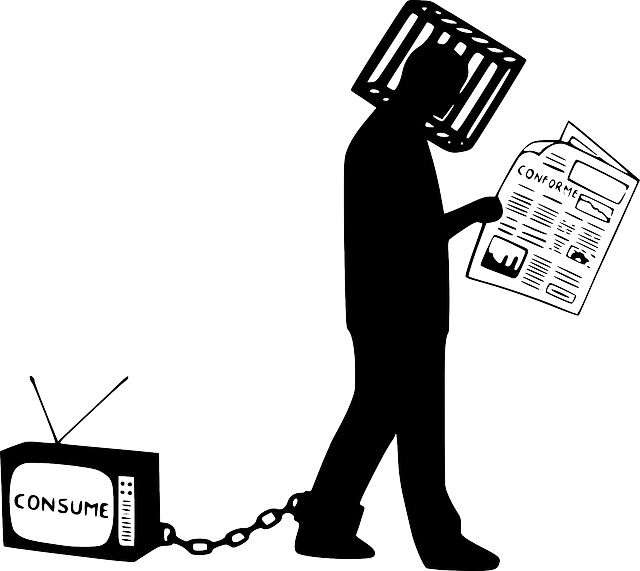Personal Loans for Debt Consolidation offer a strategic financial reset, combining high-interest debts into a single loan with potentially lower rates, accessible to individuals with bad credit. Lenders assess income stability, debt types, and number of outstanding debts, focusing on financial health rather than just credit scores. Key requirements include demonstrating income, manageable debt levels, and commitment to repayment. A robust credit score enhances loan terms; a poor score may lead to higher interest rates or rejection. To qualify despite bad credit, improve your credit score, maintain stable employment, and gather detailed financial information before applying.
Looking to consolidate your bad credit debts? Discover the eligibility criteria for personal loans designed specifically for debt consolidation. This comprehensive guide explores who qualifies, key requirements, and the importance of credit score analysis. Learn other factors lenders consider and essential steps to improve your chances of securing a loan. Enhance your financial future with these insights into bad credit debt consolidation loans.
- Understanding Bad Credit Debt Consolidation Loans
- Who is Eligible for These Loans?
- Key Requirements for Qualification
- Importance of Credit Score Analysis
- Other Factors Lenders Consider
- Steps to Improve Eligibility Chances
Understanding Bad Credit Debt Consolidation Loans

Personal Loans for Debt Consolidation are designed to help individuals manage their high-interest debts by combining them into a single, more manageable loan with a potentially lower interest rate. This strategy allows borrowers to simplify repayment and often save money over time. Bad credit debt consolidation loans cater specifically to those who may have struggled with maintaining good credit, making traditional loan options less accessible.
Understanding these loans requires recognizing that they are not just about providing funding; they offer a chance for financial reset. Lenders consider various factors beyond credit scores, such as income stability and the type of debts being consolidated. This approach ensures that borrowers can repay the new loan while improving their overall creditworthiness over time.
Who is Eligible for These Loans?

Personal loans for debt consolidation are designed to help individuals manage their multiple debts by combining them into a single, more manageable loan. But who is eligible for these loans? Generally, any individual with bad credit who has several unsecured debts, such as credit card balances or personal loans, can apply. Lenders offering these loans typically consider borrowers’ income, debt-to-income ratio, and the number of outstanding debts when assessing eligibility.
While there are no strict age limits, lenders often prefer borrowers who are established in their careers and have a stable income to ensure they can make consistent payments over the life of the loan. Additionally, applicants must meet certain credit score requirements, which vary by lender but usually range from 580 to 640 for bad credit personal loans. Those with a history of late payments or defaults may face challenges in securing approval or receiving favorable terms.
Key Requirements for Qualification

To qualify for a personal loan designed for debt consolidation, borrowers must meet several key requirements. Firstly, a poor credit score is typically not an automatic barrier; many lenders cater specifically to individuals with bad credit looking to consolidate debts. Lenders will assess your overall financial health, considering factors like income stability and the ratio of debt-to-income. This means that even with a lower FICO score, if you have a consistent source of income and manageable debt levels, you can still apply for a consolidation loan.
Additionally, lenders often require borrowers to demonstrate a commitment to repayment by providing proof of employment and stable financial history. The goal is to ensure the borrower has the means to make consistent payments over the life of the loan. Clear explanations of the borrower’s financial situation and a detailed plan for debt management are crucial during the application process for personal loans meant for debt consolidation.
Importance of Credit Score Analysis

In the realm of personal loans for debt consolidation, a thorough credit score analysis is paramount. Lenders carefully examine an individual’s credit history to gauge their financial reliability and ability to repay the loan. Credit scores are calculated based on various factors such as payment history, levels of debt, length of credit history, types of credit used, and new credit inquiries. A strong credit score demonstrates responsible borrowing habits and increases the likelihood of securing favorable loan terms, including lower interest rates. Conversely, a poor credit score may result in higher interest rates or even denial of the loan application.
Understanding one’s credit score is crucial for navigating the process of debt consolidation effectively. Individuals with lower credit scores often face more stringent lending requirements, which can impact their ability to consolidate debt successfully. However, maintaining or improving one’s credit score throughout the process is essential. Responsible financial behavior, such as making timely loan payments and keeping credit utilization low, can positively influence the credit score over time, enhancing future borrowing opportunities.
Other Factors Lenders Consider

When applying for a personal loans for debt consolidation, lenders don’t only look at your credit score. They consider several other factors that help them assess your ability to repay the loan. One key aspect is your income stability. Lenders want to see consistent and reliable income sources, such as employment records or stable business revenue, to ensure you can make regular payments without defaulting.
Additionally, lenders will review your existing debts and debt-to-income ratio. They’ll consider the types of debts you have, their outstanding balances, and how much of your monthly income goes towards repaying these debts. A higher debt-to-income ratio might raise concerns about your financial burden. Lenders aim to ensure that taking out a loan for debt consolidation won’t overwhelm your finances further.
Steps to Improve Eligibility Chances

To improve your eligibility chances for bad credit debt consolidation loans and personal loans for debt consolidation, start by actively working on improving your credit score. This includes paying all your bills on time, reducing high debt levels, and avoiding applying for new credit frequently. Additionally, maintaining stable employment and ensuring a consistent income stream can significantly enhance your application’s success.
Additionally, prepare detailed financial information before applying. This documentation may include proof of income, employment history, current debt obligations, and assets. Being fully prepared allows you to accurately represent your financial situation, which lenders appreciate.
When considering personal loans for debt consolidation, understanding the eligibility criteria is essential. While bad credit debt consolidation loans offer a potential solution, meeting key requirements such as a minimum credit score and stable income is crucial for approval. Lenders carefully analyze credit histories, employ scoring models, and evaluate other factors to assess risk, ensuring responsible lending practices. By taking proactive steps to improve your credit profile and financial health, you can enhance your eligibility chances, paving the way for a successful debt consolidation journey.
